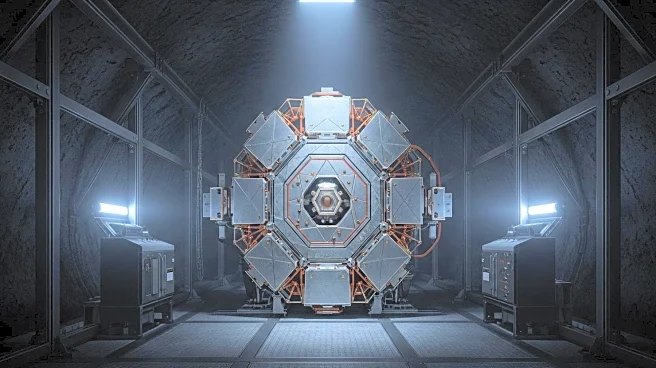What is the story about?
What's Happening?
The Jiangmen Underground Neutrino Observatory (JUNO) has successfully completed the filling of its 20,000-ton liquid scintillator detector and has begun data collection. Located 700 meters underground in Guangdong Province, China, JUNO is designed to tackle major questions in particle physics, such as the ordering of neutrino masses. The observatory detects antineutrinos from nearby nuclear power plants and measures their energy spectrum with high precision. JUNO's unique approach allows it to determine mass ordering independently of Earth's matter effects, offering significant improvements in the precision of neutrino-oscillation parameters.
Why It's Important?
JUNO's operation marks a significant milestone in neutrino research, providing a new tool to explore fundamental questions about the nature of matter and the universe. The observatory's ability to determine neutrino mass ordering could lead to breakthroughs in understanding particle physics, with implications for astrophysics and cosmology. By improving the precision of neutrino measurements, JUNO could enhance our knowledge of the universe's fundamental forces and particles, potentially leading to new discoveries in physics. This research could also inform future experiments and technologies related to neutrinos.
What's Next?
JUNO is expected to operate for up to 30 years, with plans for potential upgrades to search for neutrinoless double-beta decay. Such an upgrade would probe the absolute neutrino mass scale and test whether neutrinos are Majorana particles, addressing fundamental questions in particle physics. The observatory's findings could influence future research directions and collaborations in the field, as well as inspire new theoretical models. JUNO's success may also encourage further international cooperation in neutrino research, fostering advancements in both experimental and theoretical physics.
















